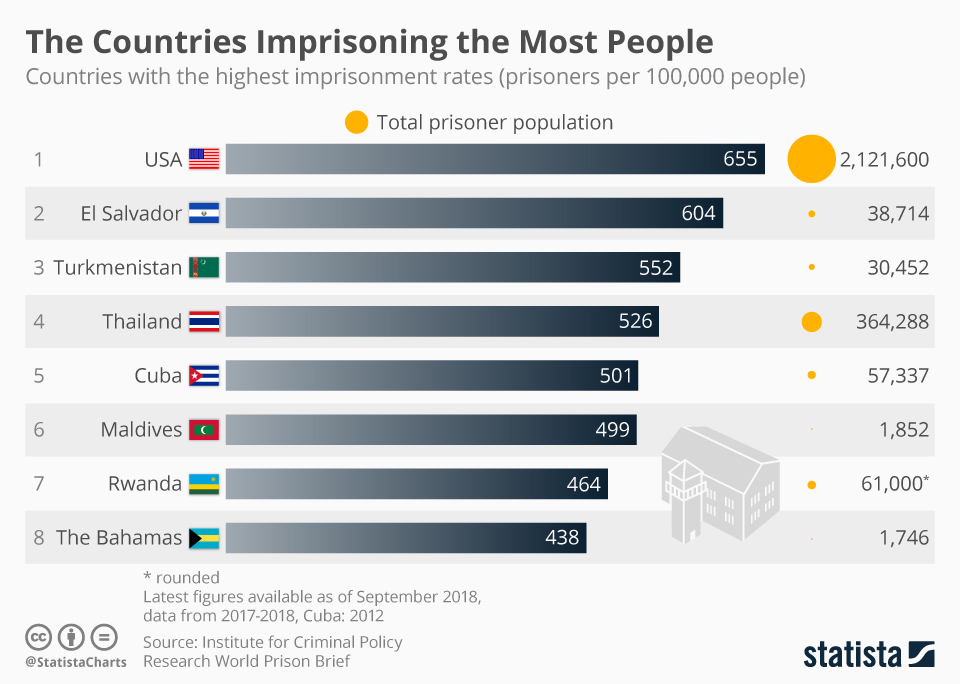The U.S. is once again the country imprisoning the most people as a share of its population. The country was mostly identified as the one imprisoning the biggest share of its population (as well as the most people in total per country) since the World Prison Brief began publishing in 1997, but in 2016, the Seychelles temporarily became the country imprisoning the most people. 799 per 100,000 people were in prison or jail in the island nation, compared to the United States’ 698 per 100,000 in 2016. In 2018, the U.S. ranked ahead of El Salvador and Turkmenistan with 655 prisoners per 100,000 people.
Generally, smaller countries tend to rank higher on the list, with a few hundred or thousand people in prison already making up a large share of the population. Restrictive regimes like Turkmenistan and Cuba also rank high, making the U.S. an outlier on the list.
The reasons for the questionable U.S. frontrunner position are myriad. Most U.S. inmates are held in local jail or state prisons. Here, the U.S. bond system determines that many of them are simply not walking free because they cannot afford bail. While the “war on drugs” has sent many inmates to federal prisons in the past, the same isn’t true for local and state facilities, where inmates are incarcerated for a sleuth of different reasons. One problem that applies to the majority of inmates though is the quite public stigma that come with incarceration in the U.S. With background checks very usual in the country and the need to register for certain offenses, many inmates have problems reentering society, causing a high rate of recidivism. The instant that many have served long mandatory minimum sentences only amplifies this aspect.
The Countries Imprisoning the Most People
Imprisonment Rates

Description
This chart shows the countries imprisoning the most people as a share of their population.
















